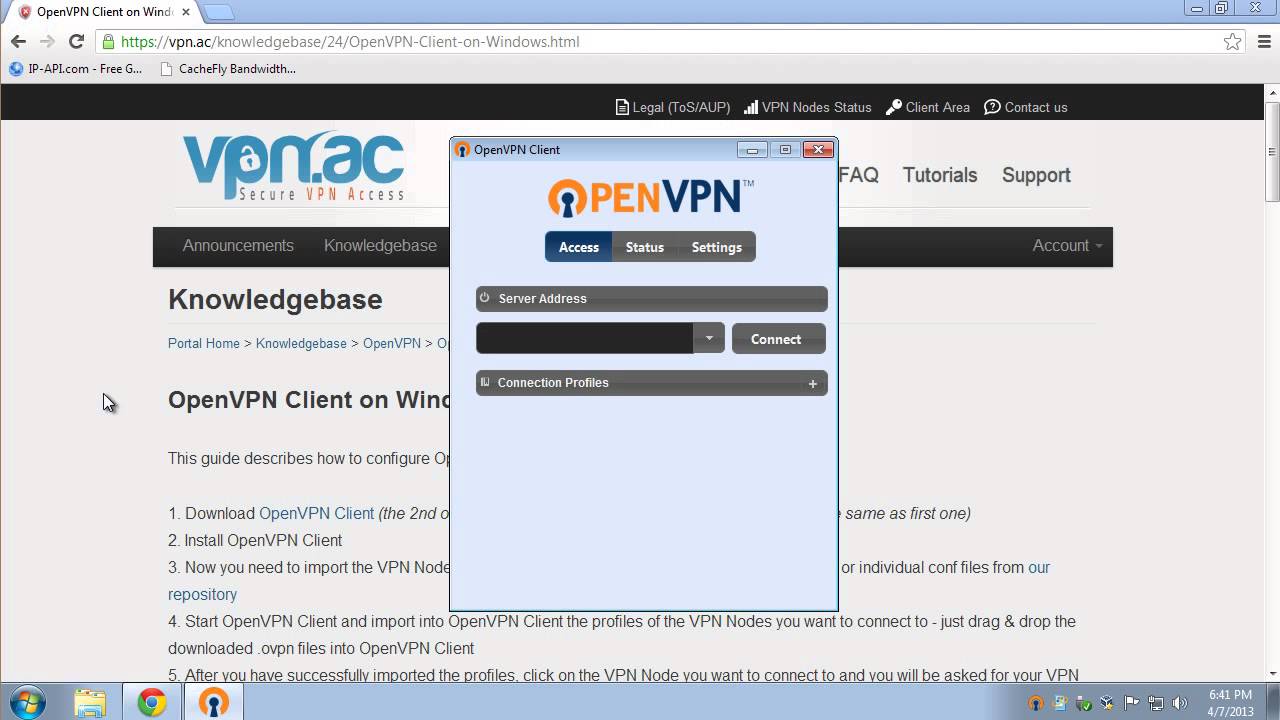OpenVPN Review
 OUR SCORE 88%
OUR SCORE 88%
- What is OpenVPN
- Product Quality Score
- Main Features
- List of Benefits
- Technical Specifications
- Available Integrations
- Customer Support
- Pricing Plans
- Other Popular Software Reviews
What is OpenVPN?
OpenVPN is a network tunneling VPN application. The solution offers a rich variety of essential features to allow users to integrate servers with other utilities to accommodate various environments such as Linux, Ubuntu, Windows, and Mac. Operating systems such as Fedora, Debian, RedHat, openSUSE, and Debian are also supported. Users are enabled by OpenVPN to set up their networks freely through different user-definable settings. OpenVPN allows the configuration of internal network access methods, local programs, and cloud-based network resources. Users can customize these via user-definable settings. Furthermore, OpenVPN also protects virtual appliances, CloudSigma servers, and Amazon Cloud private networks. This adds value to the software, as users are saved from more expenses and hassle in setting up protection by themselves.Product Quality Score
OpenVPN features
Main features of OpenVPN are:
- Adaptive Protocol Support
- API Support
- Authentication Modules
- Bundled Profiles
- CRL Support
- Local Subnet Blocking
- MacOS X Integration
- MacOS X Keychain Integration
- Multi-Daemon Support
- Secure Script Runs
- Single Sign-On Function
- Universal Bundled Profiles
- User-Configurable Solution
- Web-Free VPN
- Windows Crypto API Integration
OpenVPN Benefits

The main benefits of OpenVPN are offering SSO, enabling customization, and configuring settings. Read below to know more:
Open Source Architecture
OpenVPN is an open-source software. This enables users to deploy it on any device using any operating system; meaning, there are no constraints. Additionally, users can further customize and design the software according to their business context and preferences. This simultaneously runs with other features such as a two-factor authentication thanks to the intuitive and powerful management interface.
Single Sign-On Feature
OpenVPN employs a single sign-on for users into their networks. This makes signing on a breeze. Developers can employ such feature by just adding a few lines of code. This option saves time as everybody can sign-on once and go on about their jobs and other activities on the network.
Robust Authentications
OpenVPN allows users to create their own authentication protocols and challenges to better protect their servers. This adds another layer of tight security. This feature detects and defends against bots and hackers. With this, users will be able to determine who gets access to the right responses for network entry at the get-go.
Disabled Web Feature
OpenVPN is offered with a disabled web feature. Administrators can now choose to lock up web functions while keeping some ports open to the internet. When this feature is enabled, users do not have to open a web browser to configure settings. This helps in avoiding security issues that are browser-related.
API Support
The software supports both Windows Crypto API and MacOS X Keychain for storing keys. Additionally, it can seamlessly integrate with MacOS X. This provides multi-daemon and API support. Plus, it also comes with adaptive protocol support.
Technical Specifications
Devices Supported
- Web-based
- iOS
- Android
- Desktop
Customer types
- Small business
- Medium business
- Enterprise
Support Types
- Phone
- Online
OpenVPN Integrations
The following OpenVPN integrations are currently offered by the vendor:
- MacOS X
- Keychain
- Windows Crypto API
Video
Customer Support
Pricing Plans
OpenVPN pricing is available in the following plans:





